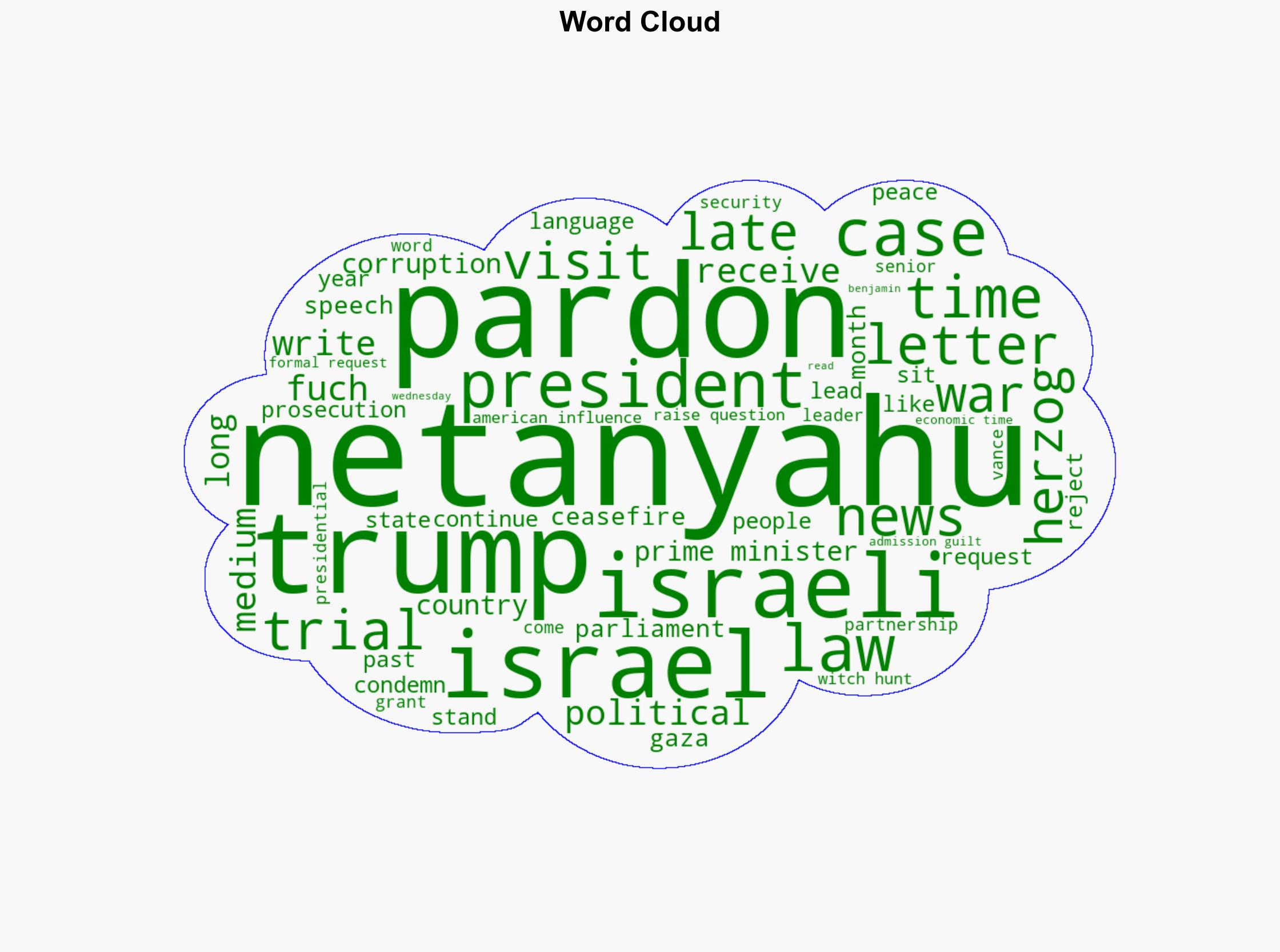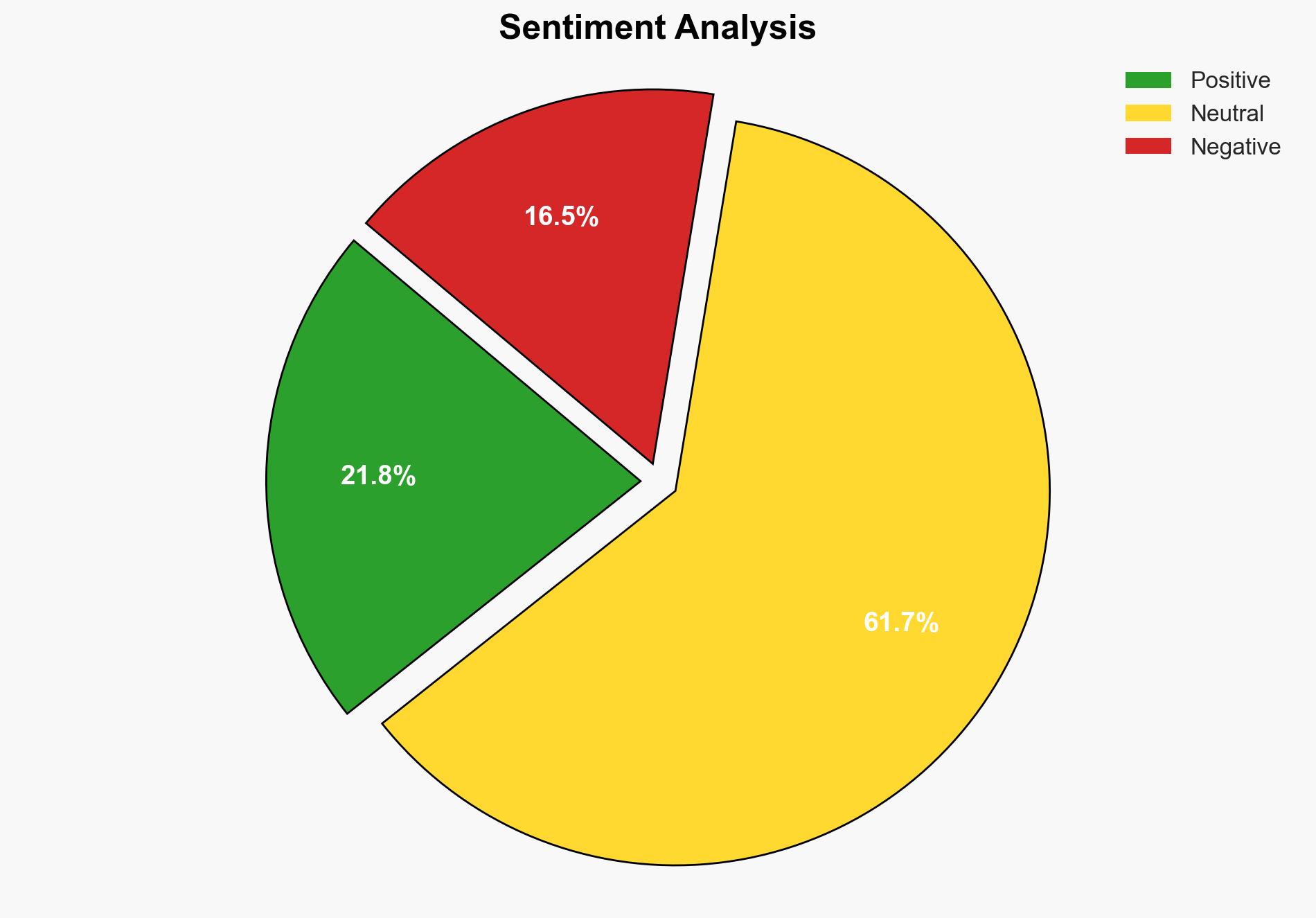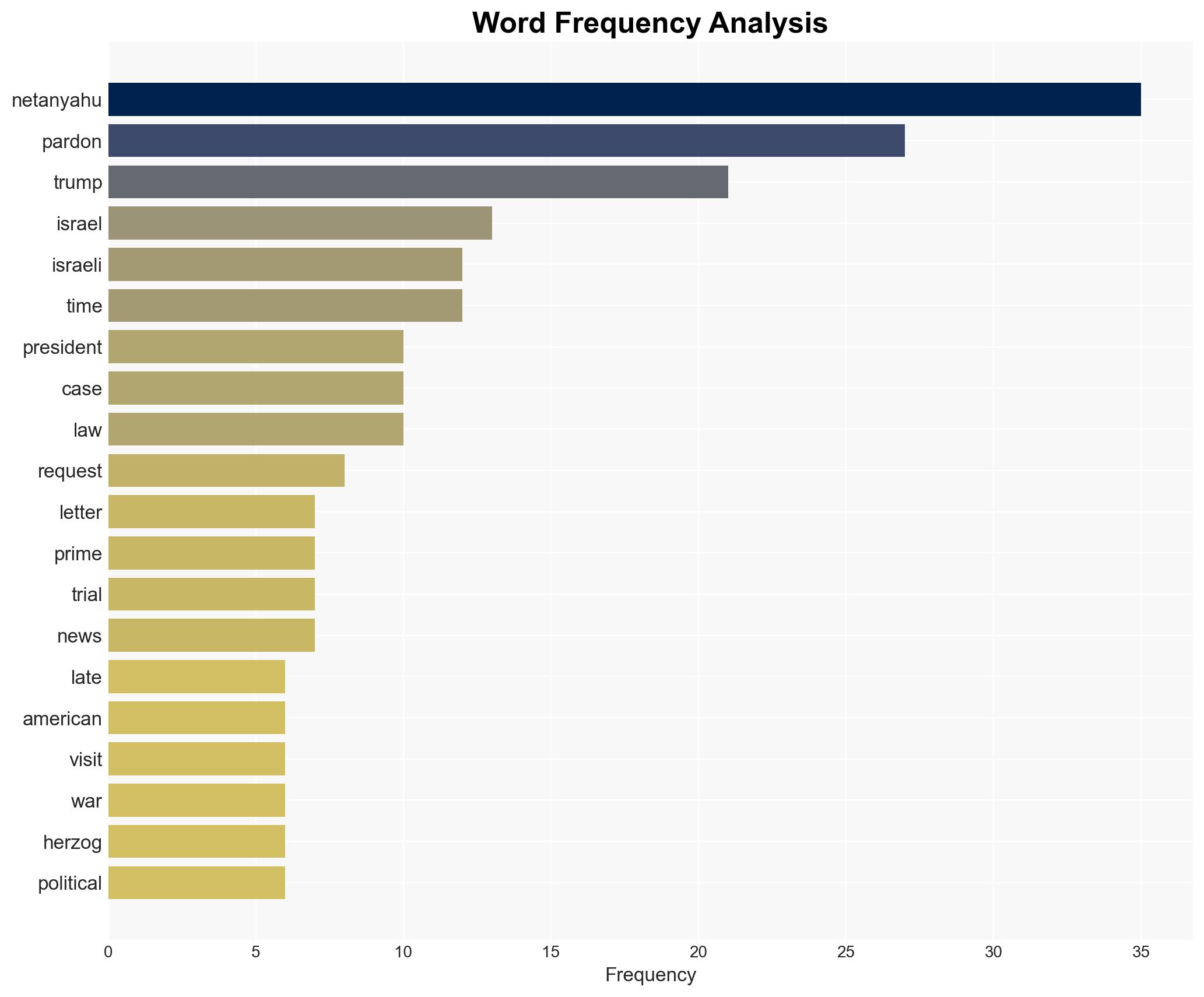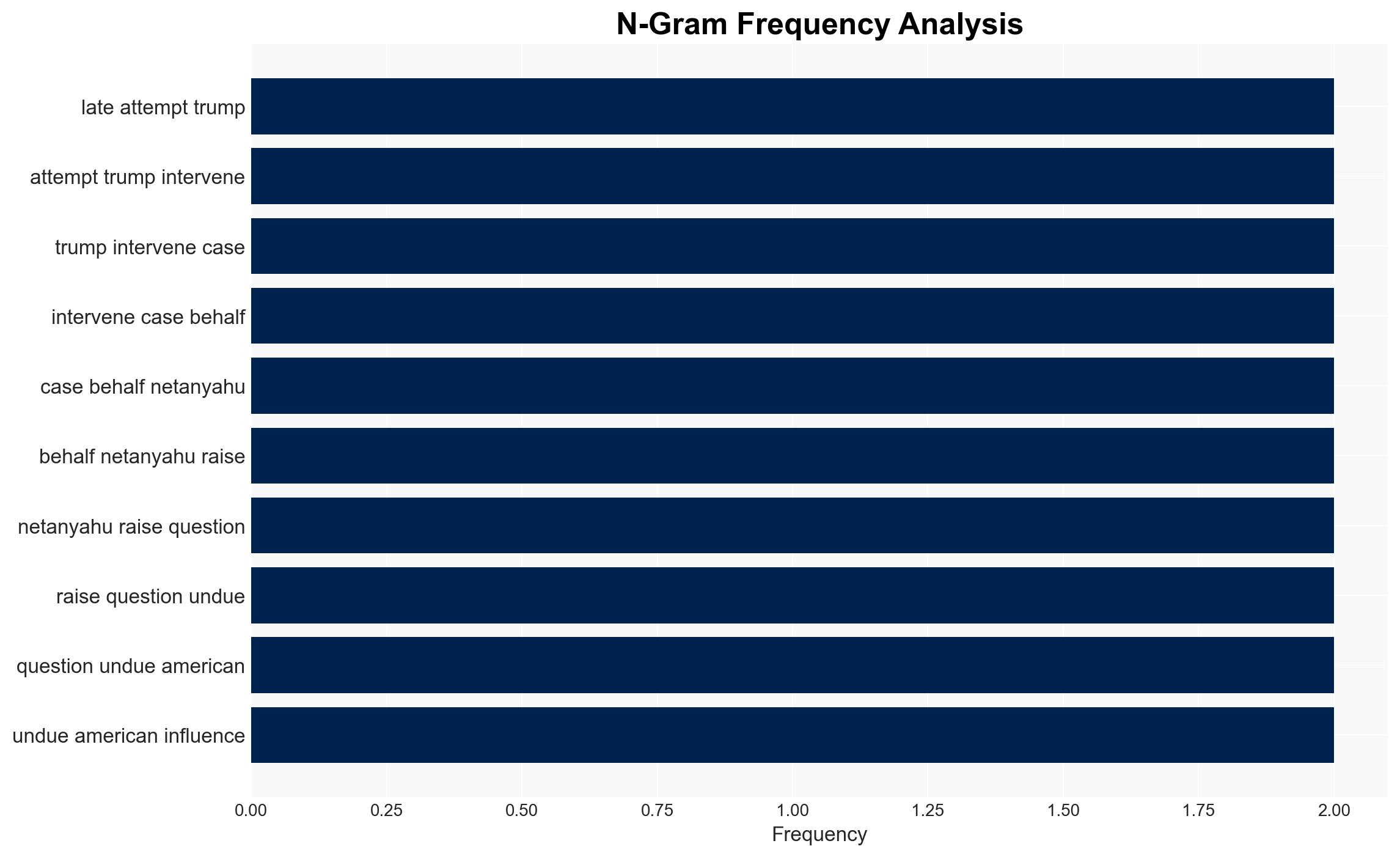Trump urges Israel to pardon Netanyahu in corruption case sparking concerns over US influence – The Times of India
Published on: 2025-11-13
AI-powered OSINT brief from verified open sources. Automated NLP signal extraction with human verification. See our Methodology and Why WorldWideWatchers.
Intelligence Report: Trump urges Israel to pardon Netanyahu in corruption case sparking concerns over US influence – The Times of India
1. BLUF (Bottom Line Up Front)
With a moderate level of confidence, the most supported hypothesis is that Trump’s actions are primarily aimed at reinforcing his political alliances and influence in Israel, rather than directly intervening in Israeli judicial processes. Strategic recommendations include monitoring US-Israel diplomatic interactions and preparing for potential shifts in Israeli domestic politics that could impact regional stability.
2. Competing Hypotheses
Hypothesis 1: Trump’s letter is a strategic move to bolster his political influence in Israel and among pro-Israel constituencies in the US, leveraging his relationship with Netanyahu.
Hypothesis 2: Trump’s actions are a genuine attempt to influence Israeli judicial proceedings, reflecting a broader strategy to undermine legal institutions perceived as adversarial.
Hypothesis 1 is more likely due to Trump’s historical pattern of using foreign policy to strengthen domestic political support and the ceremonial nature of the Israeli presidency, which limits the practical impact of his request.
3. Key Assumptions and Red Flags
Assumptions: It is assumed that Trump’s primary motivation is political rather than legal. It is also assumed that the Israeli presidency will adhere to legal norms despite external pressures.
Red Flags: The timing of Trump’s letter coinciding with visits from senior American leaders could indicate coordinated diplomatic pressure. The use of language such as “witch hunt” mirrors Trump’s domestic rhetoric, suggesting a potential attempt to sway public opinion.
4. Implications and Strategic Risks
The main risk is the potential erosion of trust in Israeli legal institutions, which could lead to increased domestic instability. Additionally, perceived US interference might strain diplomatic relations or embolden political factions within Israel, affecting regional security dynamics, particularly concerning the Gaza Strip.
5. Recommendations and Outlook
- Monitor US-Israel diplomatic communications for signs of increased political alignment or tension.
- Engage with Israeli legal experts to assess the potential impact of external pressures on judicial processes.
- Best-case scenario: The situation is managed diplomatically, maintaining the integrity of Israeli legal proceedings and US-Israel relations.
- Worst-case scenario: Escalation of political tensions leading to domestic unrest in Israel and strained US-Israel relations.
- Most-likely scenario: The issue remains a political talking point without significant legal or diplomatic repercussions.
6. Key Individuals and Entities
Donald Trump, Benjamin Netanyahu, Isaac Herzog, JD Vance, Marco Rubio, Yair Lapid, Amir Fuch.
7. Thematic Tags
Counter-Terrorism, US-Israel Relations, Political Influence, Judicial Integrity
Structured Analytic Techniques Applied
- ACH 2.0: Reconstruct likely threat actor intentions via hypothesis testing and structured refutation.
- Indicators Development: Track radicalization signals and propaganda patterns to anticipate operational planning.
- Narrative Pattern Analysis: Deconstruct and track propaganda or influence narratives.
Explore more:
Counter-Terrorism Briefs ·
Daily Summary ·
Methodology





